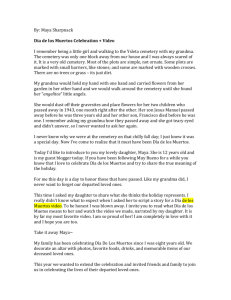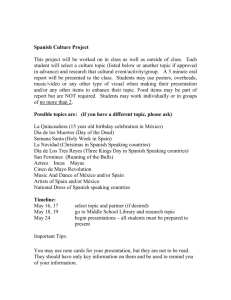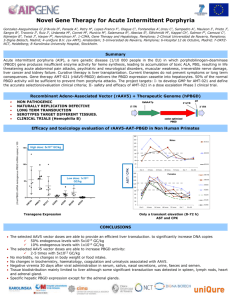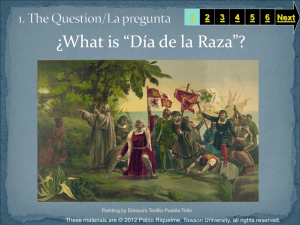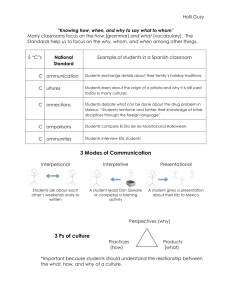3200/01 - Kennesaw State University
advertisement
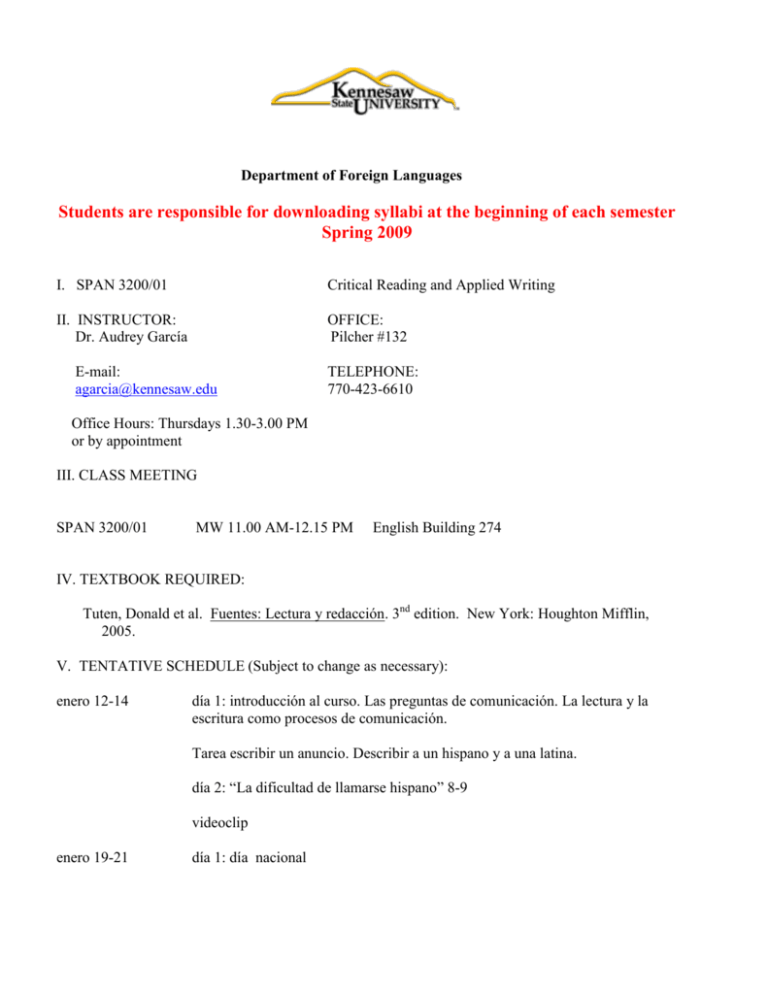
Department of Foreign Languages Students are responsible for downloading syllabi at the beginning of each semester Spring 2009 I. SPAN 3200/01 Critical Reading and Applied Writing II. INSTRUCTOR: Dr. Audrey García OFFICE: Pilcher #132 E-mail: agarcia@kennesaw.edu TELEPHONE: 770-423-6610 Office Hours: Thursdays 1.30-3.00 PM or by appointment III. CLASS MEETING SPAN 3200/01 MW 11.00 AM-12.15 PM English Building 274 IV. TEXTBOOK REQUIRED: Tuten, Donald et al. Fuentes: Lectura y redacción. 3nd edition. New York: Houghton Mifflin, 2005. V. TENTATIVE SCHEDULE (Subject to change as necessary): enero 12-14 día 1: introducción al curso. Las preguntas de comunicación. La lectura y la escritura como procesos de comunicación. Tarea escribir un anuncio. Describir a un hispano y a una latina. día 2: “La dificultad de llamarse hispano” 8-9 videoclip enero 19-21 día 1: día nacional día 2: Lectura 2: Panorama cultural 23-27 (“Historia abreviada de España” lec.1) enero 26-28 día 1: Lectura 2: Panorama cultural 46-48 (“Presencia indígena en Hispanoamérica” lec. 2) día 2: Lectura 2: Panorama cultural 49-50 (“Presencia indígena en Hispanoamérica”) Temas para proyecto #1 Descripción de un evento febrero 02-04 día 1: Lectura 2: Panorama cultural 65-69 (“El sabor africano del caribe” lec. 3) día 2: Panorama cultural 99-102 (“Política latinoamericana: pasos hacia la democracia” lec. 4) video febrero 09-11 día 1: día 2: Panorama cultural 103-105 (“Política latinoamericana: pasos hacia la democracia”) video Buscar tema para Proyecto #1 día 2: Proyecto # 1 Guía/ MLA febrero 16-18 día 1: Repaso/ traer tema proyecto día 2: Examen Tarea: Buscar artículo y hacer resumen febrero 23-25 día 1: Traer artículo y resumen (100 palabras) para revisión en clase y para hacer bosquejo Tarea: Hacer borrador día 2: Entregar artículo (100 palabras), resumen, bosquejo y borrador para revisión (300 palabras min.) de la profesora marzo 02-04 día 1: Lectura 3: Literatura 131 (“Fin de siglo”) día 2: Entregar de Proyecto #1 marzo 06 Last Day to Withdraw Without Academic Penalty 2 marzo 09-11 Vacaciones de primavera marzo 16-18 día 1: “Realidad, arte e identidad en Latinoamérica” (continuación) 160-163 día 2: “Realidad, arte e identidad en Latinoamérica” (continuación) 164-165 Temas para el ensayo final marzo 23-25 día 1: Lectura 3: Literatura 167-169 (“Continuidad de los parques”) día 2 : Buscar dos artículos y hacer resúmenes de los artículos (150 palabras cada uno) marzo 30-abril 01 día 1 Traer los dos artículos y los dos resúmenes para revisión de la profesora y para hacer bosquejo día 2: Continuación de bosquejo y comienzo del borrador abril 06-08 día 1: Traer borrador del proyecto # 2-ensayo final para revisión de la profesora día 2: Traer bosquejo y borrador (mínimo 500 palabras) del proyecto # 2 para revisión de la profesora abril 13-15 día 1: Repaso día 2: Quiz El día 20 de abril todos los estudiantes sin excepción tienen que traer sus ensayos y estar listos para hacer sus presentación en la clase. La profesora usará el sistema de lotería y las personas seleccionadas presentarán ese día. Este sistema se usará los 4 días programados para las presentaciones (20, 22, 27 y 29 de abril). Si la persona no está presente el día que su nombre sea seleccionado, perderá su turno para presentar así como los 50 puntos de la presentación. abril 20-22 día 1 Presentaciones día 2 Presentaciones abril 27-29 día 1 Presentaciones día 2 Presentaciones 3 Final Examination: To be announced Catalog Description: SPAN 3200. Critical Reading and Applied Writing in Spanish. Prerequisite: Spanish 2002 or the equivalent. This course emphasizes skill development and refinement in the areas of critical reading and writing in Spanish. Designed to give students extensive experience in reading and writing in Spanish, the course focuses on the relationship between writing and reading, and on ways to improve one through the other. VI. Course Objectives: 1-Understand reading and writing as communication 2-Understand reading and writing as mutually inclusive processes 3-Identify specific types of written texts (academic, literary, journalistic) 4-Identify how Hispanic/Latino(a) cultures are expressed through literary and non-literary texts 5-Apply MLA guidelines VII. Academic honesty statement Every KSU student is responsible for upholding the provisions of the Student Code of Conduct, as published in the Undergraduate and Graduate Catalogs. Section ii of the Student Code of Conduct addresses the University’s policy on academic honesty, including provisions regarding plagiarism and cheating, unauthorized access to University materials, misrepresentation/falsification of university records or academic work, malicious removal, retention, or destruction of library materials, malicious/intentional misuse of computer facilities and/or services, and misuse of student identification cards. Incidents of alleged academic misconduct will be handled through the established procedures of the University Judiciary Program, which includes either an “informal” resolution by a faculty member, resulting in grade adjustment, or a formal hearing procedure, which may subject a student to the Code of Conduct’s minimum one semester suspension requirement. 4 VIII. Disability Policy Kennesaw State University provides program accessibility and reasonable accommodations for persons identified as disabled under Section 504 of the Rehabilitation Act of 1973 or the Americans with Disabilities Act of 1990. A number of services are available to help disabled students with their academic work. In order to make arrangements for special services, students must visit the Office of Disabled Student Support Services (ext. 6443) and arrange an individual assistance plan. In some cases, certification of disability is required. IX. Attendance and Participation Policy Class participation is an integral part of students’ performance evaluation (see section X) therefore students are expected to attend all classes, to arrive on time, to remain in class for the entire seventy-five minutes, to come prepare, and to participate in reading discussions. Classes will start on time. Every two absences will lower your final grade by a point. If for some reason you find it necessary to arrive late, you will be responsible for all information, including announcements or changes to the syllabus, etc., made during your absence. If you are absent for the entire class period, you are also responsible for all assignments and other announcements made during the class meeting. You are, therefore, strongly advised to ask another student for his/her email address and telephone number. You are learning a foreign language; therefore, you are expected to read each assigned reading at least twice and do the pre-reading/ pos-reading exercises in order to participate in class discussions. Writing in Spanish is a process that needs guidance and several revisions which are done in class. It is your responsibility to bring each assignment when is due and during class hours. No make-up tests, class activities or assignments will be given. A grade of zero (“0”) will be assigned for all work that is not given to the professor in the classroom on the due date. Under no circumstance the instructor will grade assignments that are sent to her via e-mail, or left in her mailbox or under her office door, or given to any of the Foreign Languages Department’ secretaries or student assistants. Emergencies will be handled on an individual basis. Classroom Etiquette: Keep your shoes on. Do not chew gum or eat when class is being conducted. Use the restroom before or after class. 5 X. Student Learning Outcomes This course will contribute to the attainment of the following general (GSLO) and specific (SSLO) student learning outcomes of the B.A. in Modern Language & Culture (ML&C): GSLO ML&C 1: LANGUAGE, LINGUISTICS, & COMPARISONS Learners are proficient in using the target language, are familiar with the target language system, and seek opportunities to further develop their skills and knowledge. (Knowledge, Skills, Attitudes) SSLO ML&C 1.a.: Demonstrating Language Proficiency. Learners demonstrate a high level of proficiency in the target language, and they seek opportunities to strengthen their proficiency. (Knowledge, Skills, Attitudes) To address this outcome, learners will • improve their reading skills by studying and applying the communication process as well as various reading techniques to selected texts. Assessment: • answer pre and post-reading exercises in various formats and write summaries of selected articles. To address this outcome, learners will • improve their writing skills by studying and applying the communication process as well as writing techniques to compose various types of short narratives on the topics addressed in class. Assessment: • write a biography and a term paper. SSLO ML&C 1.b.: Understanding Linguistics. Learners know the linguistic elements of the target-language system, recognize the changing nature of language, and accommodate for gaps in their own knowledge of the target-language system by learning on their own. (Knowledge, Skills, Attitudes) To address this outcome, learners will • study communication questions, main ideas and supporting details on selected readings Assessment: • Analyze context, main ideas and supporting details on selected readings. To address this outcome, learners will • study communication questions, main ideas and supporting details on selected readings Assessment: • study communication process questions and word order to understand meaning of selected readings study communication process questions, sentence structure and word order 6 XII. Evaluation of Performance There are 430 possible points to be earned in the course. They are distributed as follows: 1 Exam………………………………………………………………………………… 1 Quiz………………………………………………………………………………….. Readings (preparation)………………………………………………………………… 100 50 50 All summaries, outlines, drafts, and essays need to be typed for revisions. Handwritten work will not be accepted. 1 proyecto # Description of an important world event…..……………………………. a-approved outline* b-approved draft* c-1 approved article * d-1 approved summary* (75 words each) e-Description (500 words) (a+b+c+d=60) 60 1 Final Essay Presentation……………………………………………………………… 50 1 Proyecto # 2-Argumentative Final Essay(a+b+c+d+e=120)………………................ 120 a-approved outline(s)* b-approved draft(s)* c-2 approved articles (125 words each) d-2 articles’ summaries (125 words each) e-Final Essay (1000 words) (a+b+c+d+e=100) ___________________________________________________________________________ 430 points *Approved=Instructor’s signature Summaries, outlines and drafts for project # 1 and # 2 must have the instructor’s approval in order to receive a grade. Grading Scale: 100-90%=A; 89-80%=B; 79-70%=C; 6960%=D; 59% and below=F Total 450 7 8
